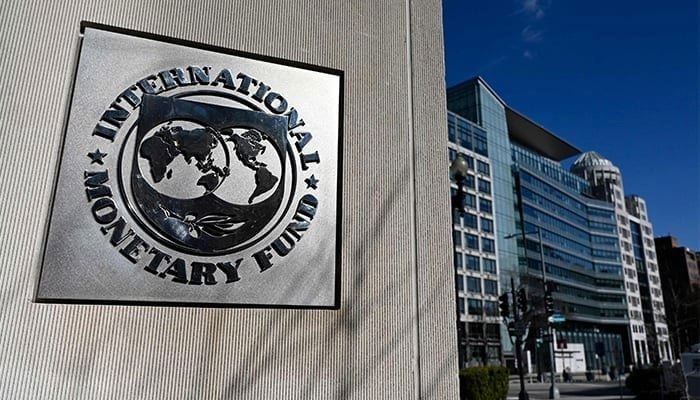More taxes to be levied if revenue less than Rs9.4tr, Pakistan tells IMF
In staff report under $3 billion Standby Arrangement (SBA) programme for Pakistan IMF made it clear broad-based reforms to improve fiscal framework remain essential
ISLAMABAD: The government is committed to taking additional taxation measures if revenue collection falls short of achieving the fixed target of Rs9.415 trillion for FY2024.
The measures agreed with the IMF include raising the GST rate for textiles and leathers tier-1 from its reduced rate of 15 percent to the standard rate of 18 percent, expected collection of Rs1 billion per month; (ii) implement a FED of Rs5 per kilogram on sugar, expected collection of Rs8 billion per month; (iii) increase advance Income Tax on import of machinery by 1 percentage point, expected collection of Rs2 billion per month; (iv) increase advance Income Tax on import of raw materials by industrial undertakings by 0.5 percentage points, expected collection of Rs2 billion per month; (v) increase advance Income Tax on import of raw materials by commercial importers by 1 percentage point, expected collection of Rs1 billion per month; (vi) increase Withholding Tax on supplies by 1 percentage, expected collection of Rs1 billion per month; (vii) increase Withholding Tax on services by 1 percentage point, expected collection of Rs1.5 billion per month; (viii) increase Withholding Tax on contracts by 1 percentage point, expected collection of Rs1.5 billion per month
In the staff report under $3 billion Standby Arrangement (SBA) programme for Pakistan, the IMF made it clear the broad-based reforms to improve the fiscal framework remain essential. The Pakistani authorities are advancing reforms to lay out a tax policy agenda to raise additional revenue, including from currently undertaxed sectors, alongside supportive administration reforms. These efforts are being supported by an IMF tax diagnostic exercise to shape the agenda for future reforms. In addition, the (Pakistani) authorities are advancing efforts to: (i) adopt a documentation law, currently in the final stages of legal procedures for adoption, which mandates 145 organisations to regularly share information with the FBR; (ii) establish a Compliance Risk Management team within the FBR focused on comprehensive risk analysis and analytics; (iii) implement the e-invoicing system, scheduled for December 2023; and (iv) launch a door-to-door campaign in four provincial capitals and Islamabad to register non-filing retailers. It would streamline tax filling processes and significantly expand the tax base. The government will be strengthening revenue collection to ensure alignment with FY24 budget. To achieve this, the FBR has commenced bringing 900,000 identified non-filers into the tax net.
The FBR was to issue initial notifications to these taxpayers by mid-December. It has established a monitoring system to track the yield of this operation with corrective measures planned should collections fall short. Further reforms to enhance revenue administration, including anti-smuggling efforts and close monitoring of track and trace system, are also underway. Finally, should revenue fall short in FY24, the authorities have identified several contingent measures that can be adopted, the Pakistani authorities assured the IMF.
-
 Fukushima Decommissioning: Japan Deploys Snake-like Robot To Remove Nuclear Debris
Fukushima Decommissioning: Japan Deploys Snake-like Robot To Remove Nuclear Debris -
 Brenda Song Turns Macaulay Culkin's 'Home Alone' Into 'terrible' Lesson: 'Children Have To Be A Little Scared'
Brenda Song Turns Macaulay Culkin's 'Home Alone' Into 'terrible' Lesson: 'Children Have To Be A Little Scared' -
 MrBeast Vows To Book Only Starlink-equipped Flights As Global Airline Adoption Surges
MrBeast Vows To Book Only Starlink-equipped Flights As Global Airline Adoption Surges -
 Kim Jong Un Says North Korea Ready To ‘get Along’ With US But Sets Key Condition
Kim Jong Un Says North Korea Ready To ‘get Along’ With US But Sets Key Condition -
 Andrew Fears What Comes Next As Jeffrey Epstein Scandal Deepens
Andrew Fears What Comes Next As Jeffrey Epstein Scandal Deepens -
 Inside Meghan Markle's 'scary' Postpartum Preeclampsia Journey
Inside Meghan Markle's 'scary' Postpartum Preeclampsia Journey -
 'Sinners' Creator Ryan Coogler's Bombshell Statement Comes To Light After Oscar Nomination
'Sinners' Creator Ryan Coogler's Bombshell Statement Comes To Light After Oscar Nomination -
 Teddi Mellencamp Pens Sweet Message As Daughter Dove Turns 6: 'Love You So Much'
Teddi Mellencamp Pens Sweet Message As Daughter Dove Turns 6: 'Love You So Much' -
 James Hetfield's Health Struggle Amid His 2026 Las Vegas Sphere Residency
James Hetfield's Health Struggle Amid His 2026 Las Vegas Sphere Residency -
 Princess Beatrice, Eugenie Are Now Facing The Same Wait As Their Parents: ‘Their Future Has To Be Decided’
Princess Beatrice, Eugenie Are Now Facing The Same Wait As Their Parents: ‘Their Future Has To Be Decided’ -
 Trump’s Tariff Turmoil Yet To Significantly Dent Growth In Emerging Economies, Despite Raising Trade Tensions
Trump’s Tariff Turmoil Yet To Significantly Dent Growth In Emerging Economies, Despite Raising Trade Tensions -
 Will There Be 'Smiling Friends' Season 4? Animated Series' Creators Make Big Announcement
Will There Be 'Smiling Friends' Season 4? Animated Series' Creators Make Big Announcement -
 Jennifer Aniston, Boyfriend Jim Curtis Prepare To Move In After 'hard Launching' Their Relationship?
Jennifer Aniston, Boyfriend Jim Curtis Prepare To Move In After 'hard Launching' Their Relationship? -
 Lamar Odom Details Struggle With Addiction And ‘amazing’ Rehab Experience
Lamar Odom Details Struggle With Addiction And ‘amazing’ Rehab Experience -
 Nvidia Vs Intel: Jensen Huang Braces Investors For Renewed Battle As Chip Wars Reignite
Nvidia Vs Intel: Jensen Huang Braces Investors For Renewed Battle As Chip Wars Reignite -
 Heidi Montag Reveals Why She Felt 'robbed' On 'The Masked Singer' After Her Elimination
Heidi Montag Reveals Why She Felt 'robbed' On 'The Masked Singer' After Her Elimination




